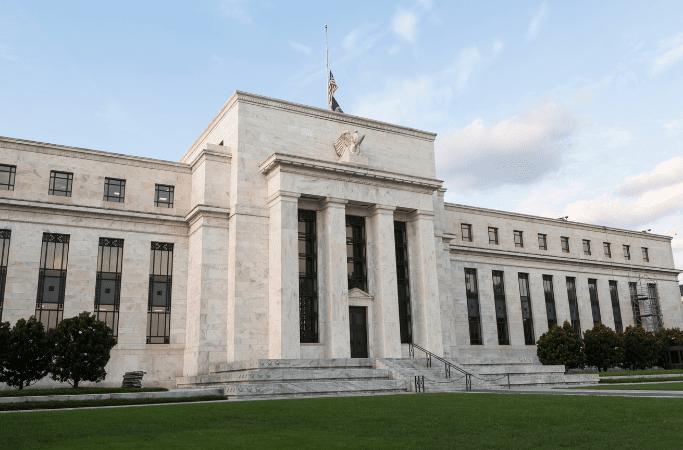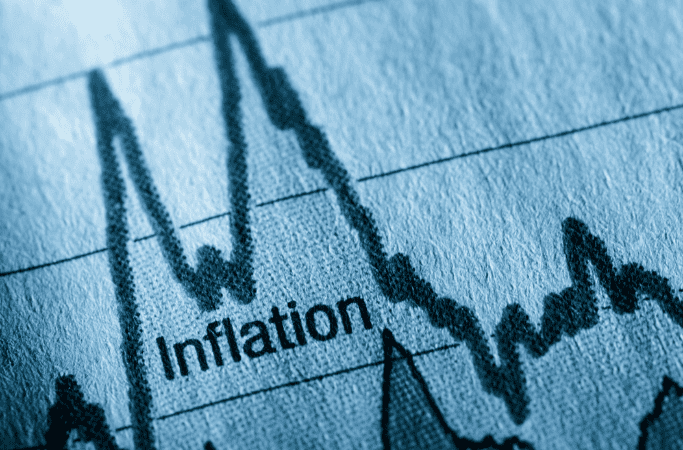In recent times, recession fears have gripped many Americans, investors, and business professionals alike. Understanding what a recession entails and its impact on the entire economy is crucial. A recession is typically characterized by a significant decline in economic activity across the economy, lasting more than a few months. It is visible in GDP growth, consumer spending, labor market conditions, and industrial production.
The Role of Federal Reserve and Central Banks in Economic Stability

The Federal Reserve and other central banks are crucial in maintaining economic stability, especially during periods of turbulence. By adjusting interest rates through either rate hikes or rate cuts, they aim to manage inflation and foster economic growth. These interest rate decisions are significant as they directly affect various aspects of the economy, including consumer confidence, labor statistics, and business conditions.
Rate changes by these central banks have a domino effect on the economy. For instance, lowering interest rates tends to encourage borrowing and investment, leading to increased consumer spending and business expansion. Conversely, raising rates can help cool down an overheated economy and control inflation. Thus, the strategic management of interest rates is vital for balancing economic growth and maintaining overall financial stability.
Labor Market Resilience and Unemployment Trends
One of the key indicators of a healthy economy is a robust labor market. The unemployment rate is a critical metric, with low unemployment signifying strong economic health. Recent trends in job market statistics, labor statistics, and employment rates provide insights into the economy's resilience against a recession.
Global Economy Interlinkages and the Impact on Domestic Markets

The global economy significantly influences local economic landscapes. Factors such as rising prices, trade relations, and foreign investment create a complex web of interactions that directly impact domestic markets. For instance, price fluctuations in global commodities can affect local inflation rates, while international trade dynamics can influence a country's export-import balance. Additionally, foreign investments bring in capital, technology, and expertise, which can stimulate domestic economic growth.
Understanding these global-local interconnections is key to accurately predicting economic growth and addressing recession fears. Changes in the global economy can have ripple effects, impacting everything from local job markets to national GDPs. For example, a slowdown in major economies can reduce demand for exports from smaller countries, potentially leading to economic contractions. Conversely, global economic booms can create opportunities for domestic markets to flourish. Therefore, a comprehensive understanding of global economic trends is essential for policymakers and investors to make informed decisions.
Consumer Spending and Confidence: Key Economic Indicators
Consumer spending and consumer confidence are leading indicators of economic health. High consumer confidence often leads to increased spending, which in turn drives economic growth. Monitoring these indicators helps in forecasting future economic trends and addressing recession fears.
Investigating Stock Market Trends and Treasury Yield Curve

The stock market and the treasury yield curve are pivotal in gauging the economic climate. Movements in the stock market reflect investor sentiment, with rising stock values typically indicating optimism about future economic performance, and declines suggesting apprehension. Similarly, the treasury yield curve, which charts the yields of U.S. government bonds across different maturities, provides insight into long-term economic prospects. A normal, upward-sloping curve suggests positive growth expectations, while an inverted curve can signal recession fears.
Analyzing these financial indicators helps in understanding broader economic trends. For instance, strong stock market performance can point to robust corporate health and investor confidence, driving economic growth. On the other hand, shifts in the treasury yield curve, particularly a flattening or inversion, often forewarn of changing economic conditions, such as slowing growth or potential recessions. Therefore, keeping a close eye on these indicators is crucial for investors, policymakers, and economic analysts to anticipate and react to economic shifts effectively.
Expert Opinions: Insights from Chief Economists and Investment Officers
Chief economists and chief investment officers provide expert insights into the current state and future expectations of the economy. Their analysis, often based on comprehensive data and reports, helps in understanding the nuances of economic growth, consumer trends, and market dynamics.
Rising Prices and Inflation: Challenges and Responses

Inflation and rising prices present significant challenges to economic stability. The impact of higher costs on consumer spending, business investments, and overall business conditions cannot be understated. Strategies to mitigate these effects are crucial for maintaining a healthy economy.
Predicting the Economic Future: Forecasts and Indicators
Economic forecasts provide a glimpse into the coming months and next year, helping businesses and consumers plan ahead. Key indicators such as GDP growth, unemployment rates, and consumer confidence are used to make these predictions.
The Impact of Economic Policies and Government Interventions

Government policies and interventions, including fiscal stimulus and monetary policies, play a significant role in shaping the economy. The Federal Reserve and government's responses to economic slowdowns or banking crises can either alleviate or exacerbate recession fears.
Conclusion
In conclusion, while recession fears are valid concerns, a thorough understanding of economic indicators, expert analyses, and government policies can provide clarity. Staying informed and adaptable is key to navigating through economic uncertainties and potential recessions.
Also Read: What Is Stagflation | A Complete Guide
FAQs
What Causes Recession Fears in the Economy?
Recession fears often arise from a combination of factors such as slowdowns in economic growth, rising unemployment rates, declines in consumer spending, and uncertainty in global markets. These fears are further fueled by predictions of economic downturns by chief economists and market analysts.
How Does the Federal Reserve Help in Alleviating Recession Concerns?
The Federal Reserve plays a crucial role in managing recession concerns by adjusting interest rates, which influence consumer spending and investment decisions. Lowering rates can stimulate the economy, while raising them can help control inflation. The Fed also uses other tools like open market operations and quantitative easing to maintain economic stability.
Can Consumer Confidence Predict Economic Trends?
Yes, consumer confidence is a key indicator of economic health. High confidence levels typically lead to increased consumer spending, which drives economic growth. Conversely, low confidence can signal a slowdown in spending and a potential recession. Monitoring consumer confidence helps in forecasting future economic trends and preparing for potential changes in the market.













